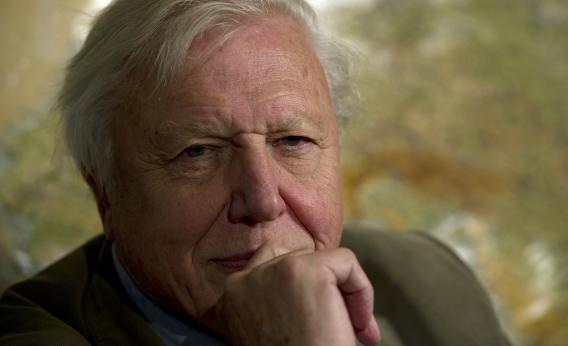Sir David Attenborough—he of the excited whisper, the impish smile, and the unabashed glee at the mating rituals of birds of paradise—has about had it with the U.S. presidential candidates’ unwillingness to address climate change. Speaking a few days after the final presidential debate, in which the candidates (and moderator) once again ignored the issue entirely, Attenborough told The Guardian, “[It] does worry me that most powerful nation in the world… denies what the rest of us can see very clearly. I don’t know what you do about that. It’s easier to deny.”
The beloved 86-year-old British naturalist hypothesized that some U.S. politicians prefer to question the science on climate change because acknowledging the problem could mean having to spend a lot of money to deal with it. So instead they say, “‘Don’t worry about that, we’re not going to increase your taxes.’”
Attenborough, who has hosted such acclaimed nature documentaries as The Life of Mammals, Planet Earth, and the superior (sorry, Oprah) U.K. version of Life, was asked what he thought it would take for Americans to wake up to the issue. His response:
Disaster. It’s a terrible thing to say, isn’t it? Even disaster doesn’t do it. There have been disasters in North America, with hurricanes and floods, yet still people deny and say ‘oh, it has nothing to do with climate change.’ It visibly has got [something] to do with climate change.
He speculated that the America’s pioneer mythology might be clouding its vision, noting that his fellow Brits had grown up instead with “a mythology of black industry and wrecking the countryside.”
His long-term prescription: Get global population growth under control “by giving women the rights to control their own bodies and control how many children they have. In every circumstance where women have that right, where they have the vote, where they are proper medical facilities, where they are literate, where they are given the choice, the birth rate falls. … That is a good start, if it could be spread.”
The Guardian has more of the interview, including a video clip.
